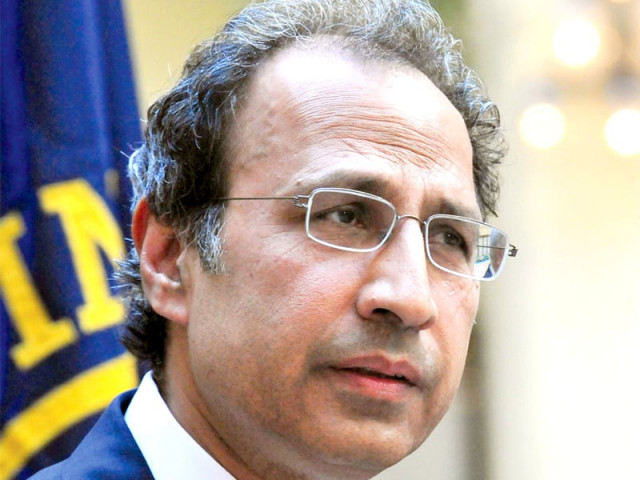‘Failure to rationalise tariffs threat to fiscal balance’
Controlling the budget deficit is the biggest challenge.

As the decision to increase power tariffs remains hanging in balance, the country’s Finance Minister warned that failure to “rationalise tariffs will pose serious threats to the fiscal balance”.
Finance Minister Dr Abdul Hafeez Shaikh further said that controlling the budget deficit gap between the state’s income and expenses was the ‘biggest challenge among all and mother of all evils”. Shaikh said this at the inaugural session of 27th annual conference of Pakistan Society of Development Economists (PSDE), organised by Pakistan Institute of Development Economics (PIDE), on Tuesday.
The finance minister’s comments have come at a time when the government has failed to take a decision on the 6% increase in tariffs that is putting an additional burden on the budget.
The government has worked out a 14-16% increase in electricity prices to minimise the gap between cost of generation and end-consumer price for the current year and the working remains unimplemented despite lapse of five months.
Shaikh also warned that the ongoing security situation will have a cost on the budget as the forces cannot be left out in times of need. Pakistan has decided to deploy air defense weapons at the western borders for the first time after recent “unprovoked attacks” by Nato, killing 24 Pakistani troops.
For the current fiscal year, the government has allocated Rs495 billion for defence budget and during the first three months, the forces spent 22% of the allocated amount, according to finance ministry.
For the current fiscal year, the finance ministry has estimated a Rs850 billion budget deficit that comes to 4% of the total national output. A delay in power sector reforms, including tariff rationalisation, is estimated to put an additional burden of Rs22 billion to Rs30 billion per month on the budget.
Shaikh said the average budget deficit of last four years had remained at 6% plus. Shaikh said the rising role of provinces has made economic management a more difficult task.
“The country was facing challenges of economic stability and structural reforms due to policy lapses and external shocks”, said Shaikh.
He said tax collection has remained a historical failure of all successive governments and was a key source of vulnerability and an obstacle to self-reliance. He said the parliament was an obstacle in implementation of the integrated value added tax in the country and the textile and agriculture lobbies have become hurdles in tax reforms.
“The economic team is trying to do its best and I apologise if we fail sometimes”, Shaikh said.
Shaikh said to increase the tax base in the country, the government would go after 700,000 potential evaders this year at every cost. So far 200,000 notices have been sent and 27,000 have responded, he added.
PSDE President Rashid Amjad said that the country needs to have 9% growth rate to accommodate young workforce that is growing at a rate of 3.5%. He said the country needs to open its borders for trade with India and other regional countries to boost exports.
Published in The Express Tribune, December 14th, 2011.


















COMMENTS
Comments are moderated and generally will be posted if they are on-topic and not abusive.
For more information, please see our Comments FAQ